The MSSQL Extension for VS Code continues to evolve, delivering features that make SQL development more integrated, more consistent, and more developer-friendly. In version v1.37.0, we’re announcing the Public Preview of Edit Data, Data-tier Application (DACPAC/BACPAC) export & import, and the SQL Database Projects Publish Dialog, along with the General Availability of GitHub Copilot — four capabilities that bring modern data editing, migration workflows, schema publishing, and AI-powered assistance directly into your development workflow inside Visual Studio Code.
What’s new in MSSQL extension for VS Code v1.37
This release introduces four major capabilities designed to streamline the SQL development experience:
- GitHub Copilot (General Availability) — AI-powered query generation, schema design, optimization, ORM support, and contextual chat with @mssql.
- Edit Data (Public Preview) — Interactively browse, edit, add, or delete rows in a spreadsheet-like grid, with real-time validation and script previews.
- Data-tier Application export & import (Public Preview) — Deploy and extract
.dacpacfiles or import/export.bacpacfiles without leaving VS Code. - SQL Database Projects Publish Dialog (Public Preview) — A redesigned publishing experience for deploying changes from SQL Database Projects.
GitHub Copilot (GA)
GitHub Copilot integration is now GA, bringing AI-powered development directly into your SQL workflow in Visual Studio Code, making database design, query optimization, and schema management faster and smarter than ever.
Built for developers, this integration transforms how you build with SQL by combining contextual understanding of your connected database, open files, and natural language prompts to provide intelligent assistance at every step.
What you can do with GitHub Copilot:
- Chat with @mssql – Generate queries, explain stored procedures, scaffold schemas, or debug SQL issues using natural language.
- Inline suggestions – Receive smart completions in SQL and ORM frameworks like Prisma, Sequelize, SQLAlchemy, and Entity Framework.
- Schema design & exploration – Create or evolve schemas using conversational prompts or generated migration scripts.
- Query optimization – Identify slow patterns and receive recommendations to improve performance.
- Business logic understanding – Ask GitHub Copilot to explain complex functions, views, or triggers in plain language.
- Security insights – Detect risky patterns (e.g., SQL injection) and receive safer alternatives.
- Mock & test data generation – Generate sample datasets or seeding scripts instantly.
- Onboarding panel – When no database is connected, Copilot displays a context-aware onboarding experience to help you get started faster.
GitHub Copilot Agent Mode
GitHub Copilot Agent Mode provides a dedicated, SQL-aware AI assistant inside Visual Studio Code. It understands your database context, helps you troubleshoot issues, explores schemas, and walks through complex data logic. All through conversational intelligence.
GitHub Copilot Slash Commands
GitHub Copilot Slash Commands let you execute structured database actions directly from chat using commands like /connect, /runQuery, or /showSchema. Slash Commands offer a predictable, fast way to explore schemas, switch connections, and run queries without crafting full prompts, making GitHub Copilot far more efficient for common SQL tasks.
How to Enable Experimental Features in the MSSQL extension
To try our experimental features in this new MSSQL extension release: Edit Data (Preview) and Data-tier Application Export & Import (Preview). All you need to do is to turn on this feature flag in your MSSQL extension settings. Follow the steps below:
- Open Visual Studio Code Settings. You can do this in either of the following ways:
- Click the gear icon in the bottom-left corner and select Settings.
- Press Ctrl + Shift + P to open the Command Palette, then search for “Preferences: Open Settings (UI)” and select it.
- Once you are in Setting UI, open the search bar and type
mssql: Enable Experimental Features. - Check the box under
mssql: Enable Experimental Features. - Follow the on-screen prompt to reload Visual Studio Code, so the changes take effect.
Edit Data (Preview)
The MSSQL extension now includes Edit Data, a modern, interactive way to browse and modify table data directly in VS Code. This new experience replaces basic TOP-N query workflows with an intuitive grid designed for quick edits, debugging, and validation during development.
To try it, double click or right-click any table in Object Explorer and select Edit Data (Preview).
Key highlights
- Inline editing – Modify cell values directly with real-time validation and error handling.
- Add & delete rows – Insert or remove rows without writing SQL.
- Pagination – Smooth navigation through large datasets using configurable paging controls.
- Pending changes model – All modifications remain uncommitted until you select Save Changes.
- Show Script pane – Review the read-only DML script that reflects your pending changes in real time.
This feature helps developers debug data issues, validate assumptions, seed local databases, and iterate quickly without requiring manual DML scripts.
Learn more:
Data-tier Application export & import (Preview)
The MSSQL extension now includes an integrated experience to deploy and extract .dacpacfiles, as well as import and export .bacpac packages. This brings familiar data-tier workflows into VS Code, simplifying environment setup, migrations, and deployments.
Key highlights
- Publish – Deploy a
.dacpacto a target database. - Extract – Generate a
.dacpacfrom an existing database. - Import – Create a new database from a
.bacpaccontaining schema + data. - Export – Export a database to a
.bacpacfile.
This new UI makes it easier to manage data-tier assets, move between environments, or integrate with CI/CD pipelines, all from within VS Code.
SQL Database Projects Publish Dialog (Preview)
The SQL Database Projects extension for Visual Studio Code now includes an improved Publish Dialog, making it simpler than ever to deploy your database changes directly from your development environment. The new experience brings clarity and ease to configuring publish targets, previewing scripts, and deploying updates without leaving VS Code.
With this update, developers can manage deployment workflows for both on-premises and Azure SQL databases in a unified, intuitive interface that mirrors familiar SSDT patterns.
Key highlights
- Streamlined Deployment Flow – Redesigned to guide users through connection setup, script generation, and deployment in fewer steps.
- Consistent Experience – Unified UI for SQL Server and Azure SQL projects, reducing confusion and improving discoverability.
- Preview and Validate – Easily review generated scripts before deployment to ensure accuracy and control.
- Integrated in VS Code – Manage the full build-and-publish workflow within the SQL Database Projects extension, without switching tools.
Other updates
- Connection reliability – Fixed issues that prevented users from establishing connections.
- Fabric connectivity stability – Resolved query failures when working with Fabric tables.
- Authentication persistence – Fixed a bug where saved passwords were lost after failed connections.
- Performance & memory – Addressed excessive memory usage and unresponsive queries.
- Query result aggregations – Fixed missing count, sum, and average calculations when selecting rows or columns.
- Query results grid – Improved rendering stability and responsiveness.
- Accessibility – Improved keyboard navigation and overall accessibility of the query results grid.
Conclusion
The v1.37 release introduces the Preview of Edit Data, DACPAC/BACPAC export and import, SQL Database Projects Publish Dialog and GitHub Copilot GA — four major updates that streamline data editing, migration, schema publishing, and AI-assisted development. Together, these capabilities make the MSSQL extension more powerful, more consistent, and more developer-friendly than ever.
If there’s something you’d love to see in a future update, here’s how you can contribute:
- 💬 GitHub discussions – Share your ideas and suggestions to improve the extension
- ✨ New feature requests – Request missing capabilities and help shape future updates
- 🐞 Report bugs – Help us track down and fix issues to make the extension more reliable
Want to see these features in action?
Thanks for being part of the journey—happy coding! 🚀

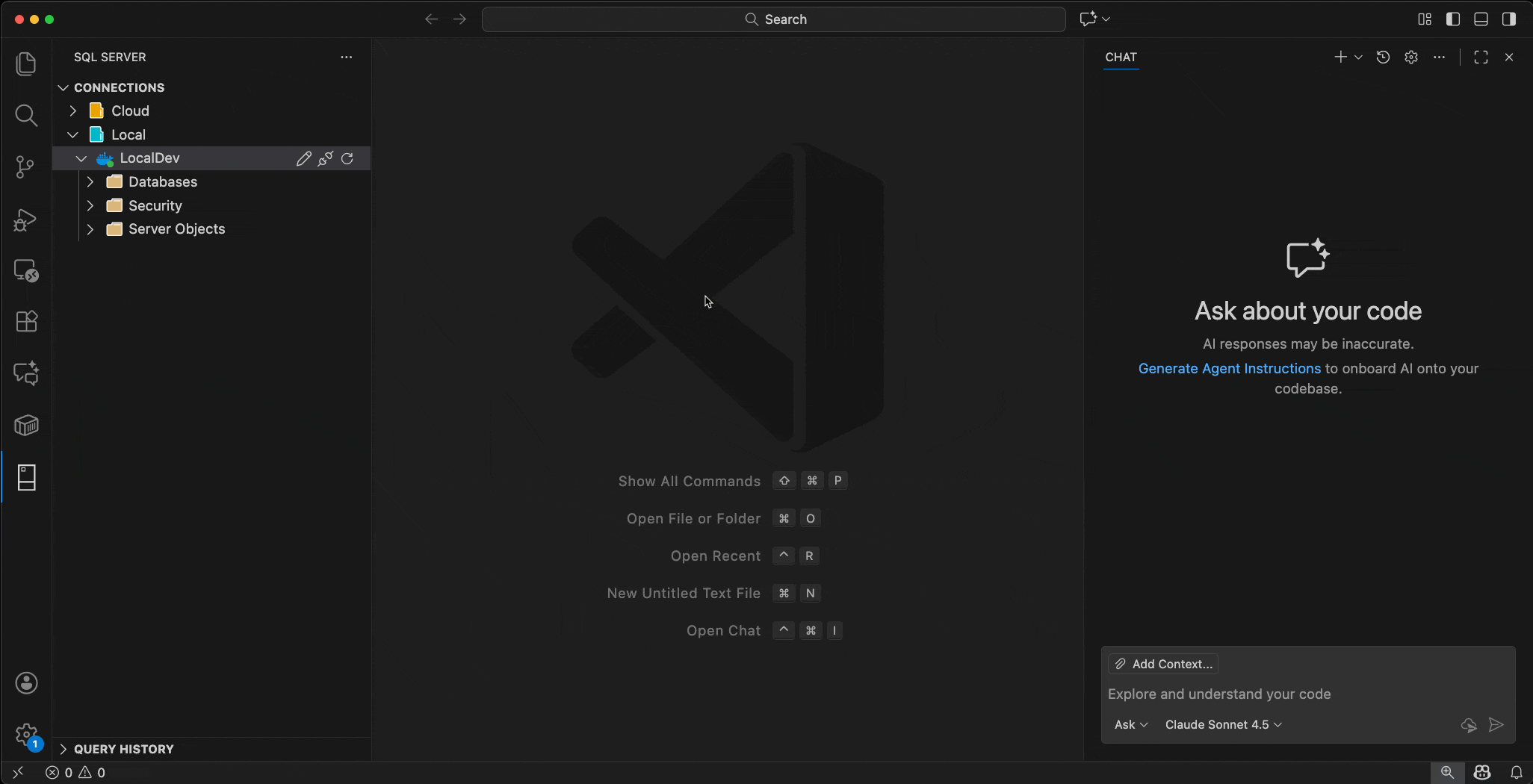
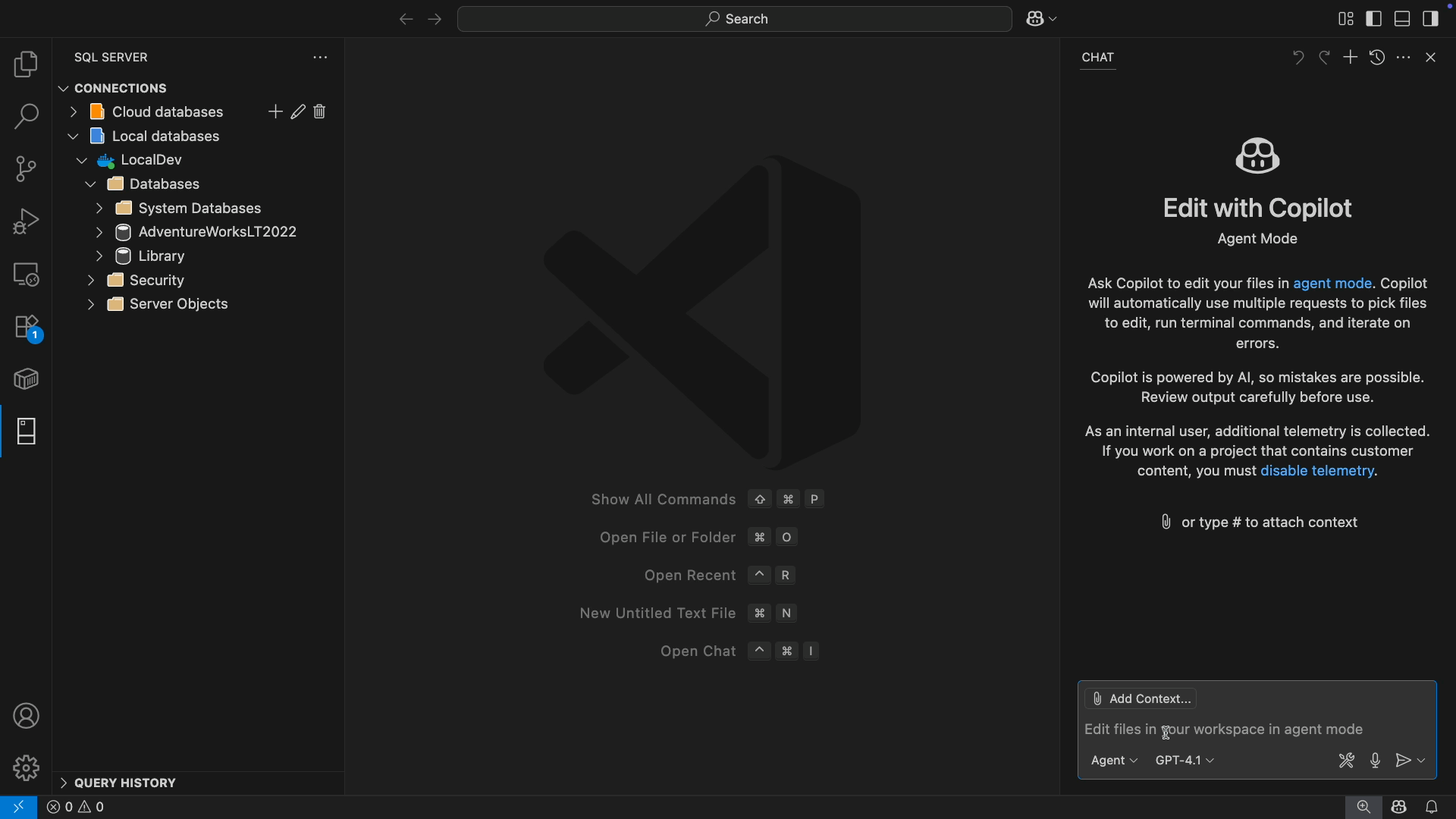
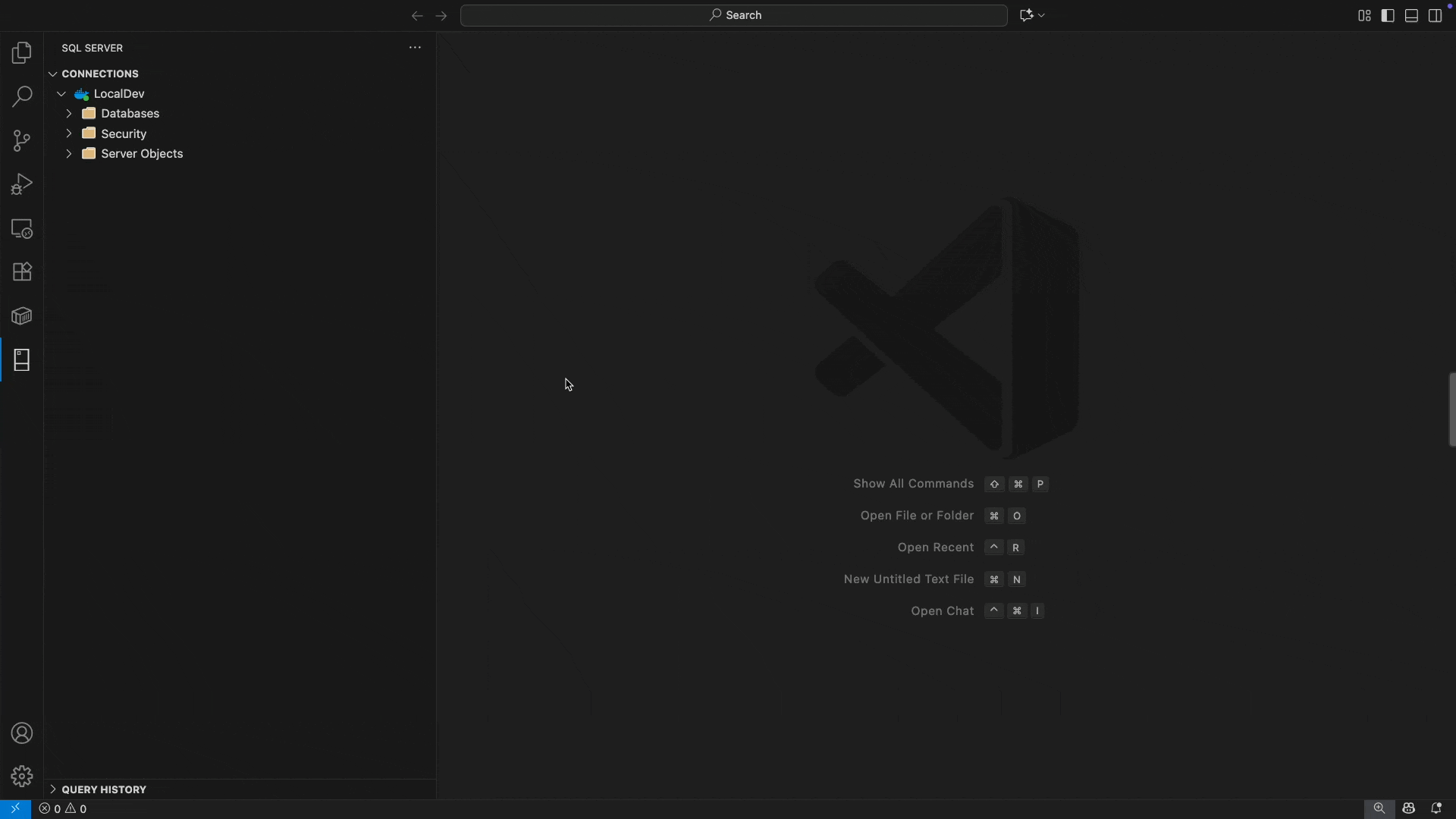

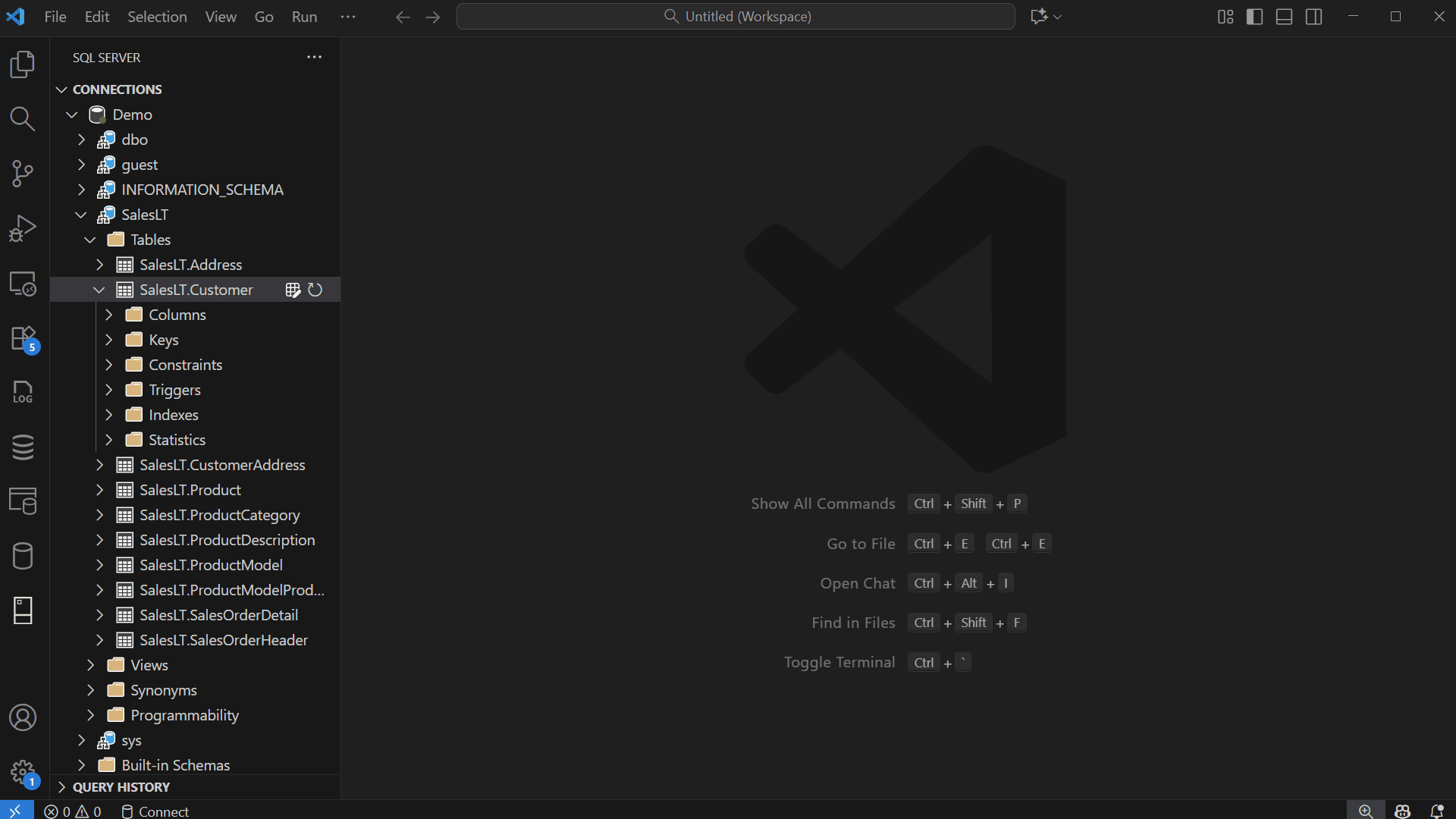
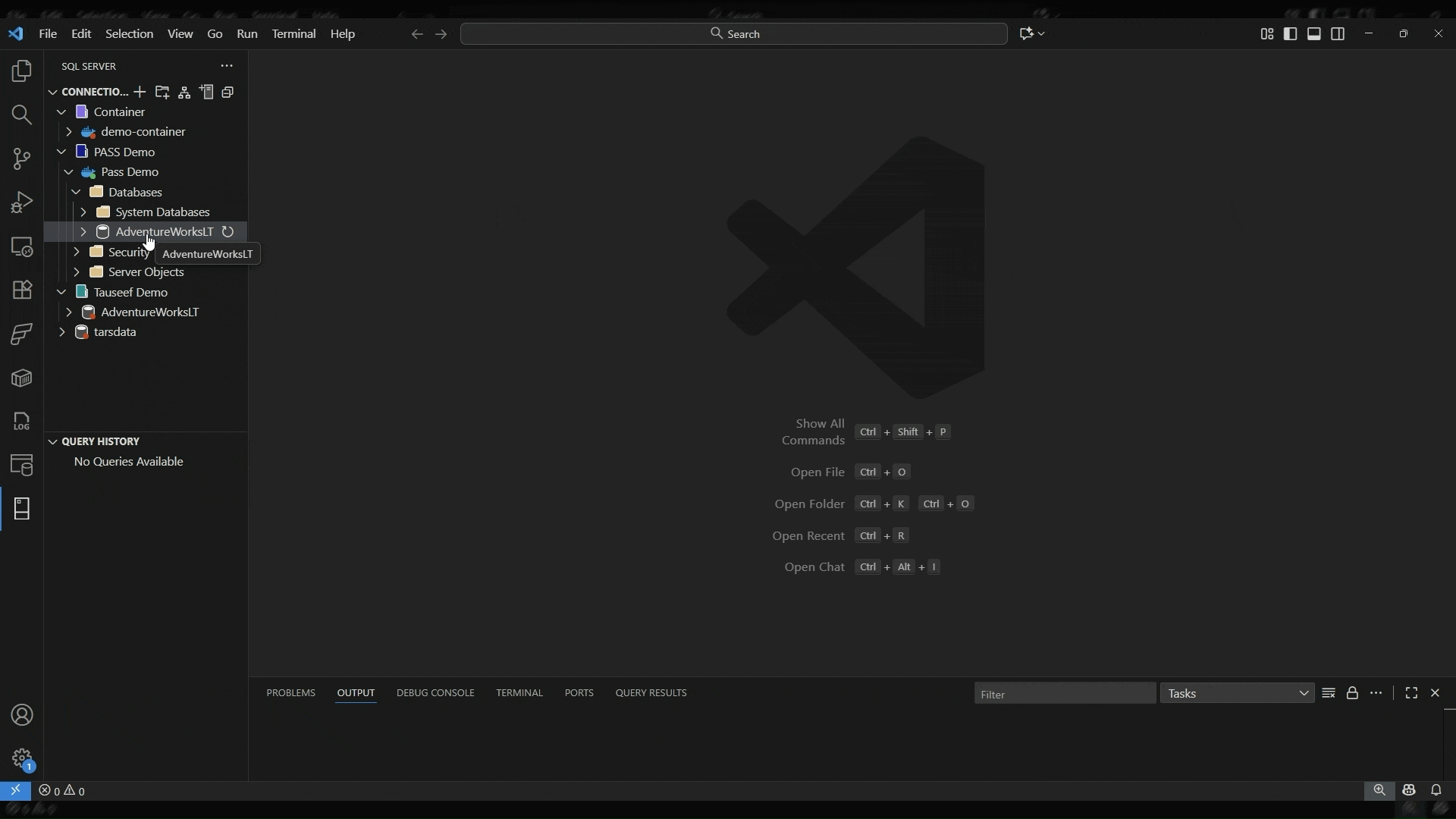
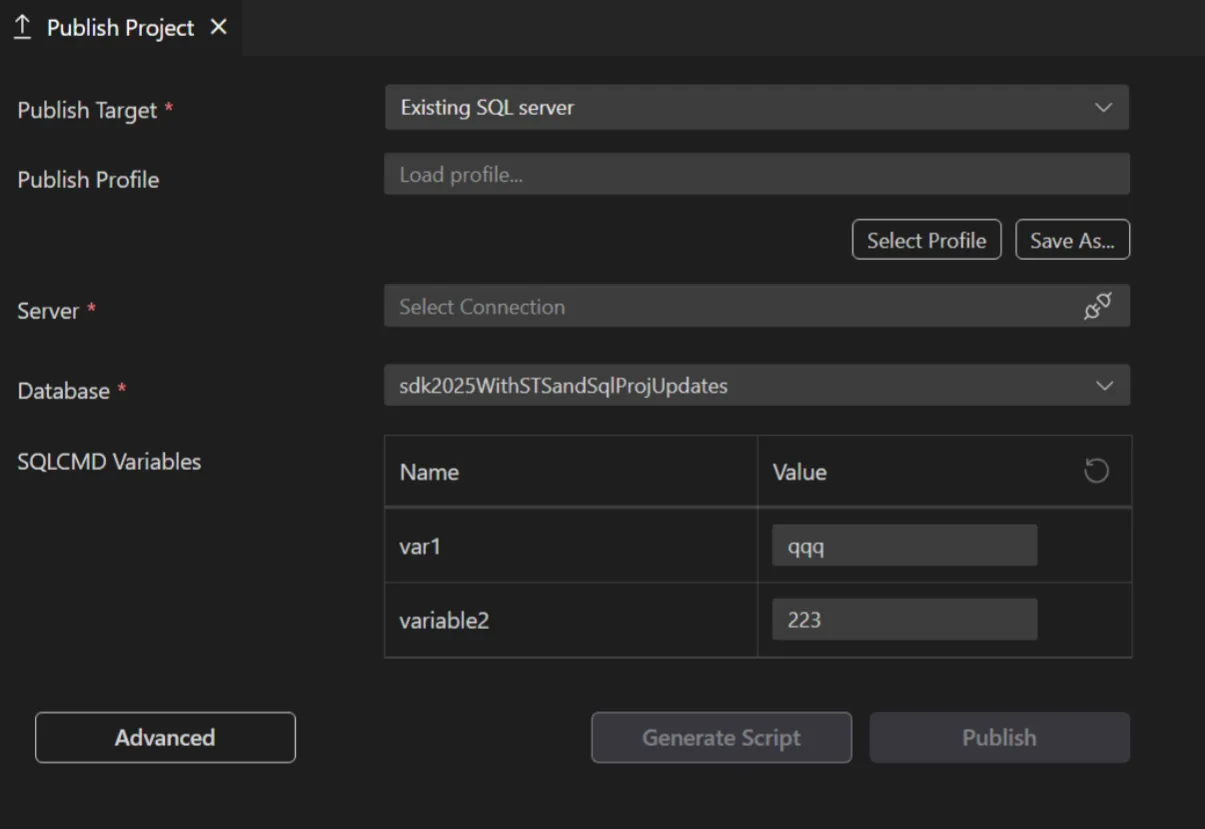
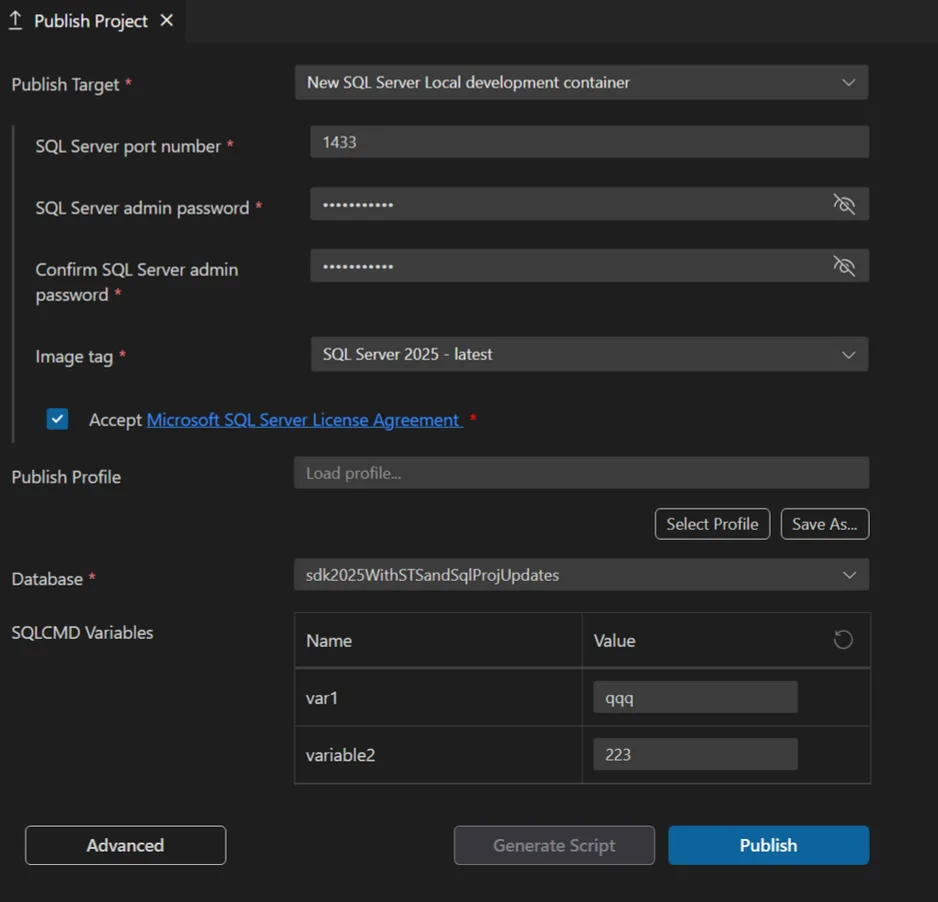
0 comments